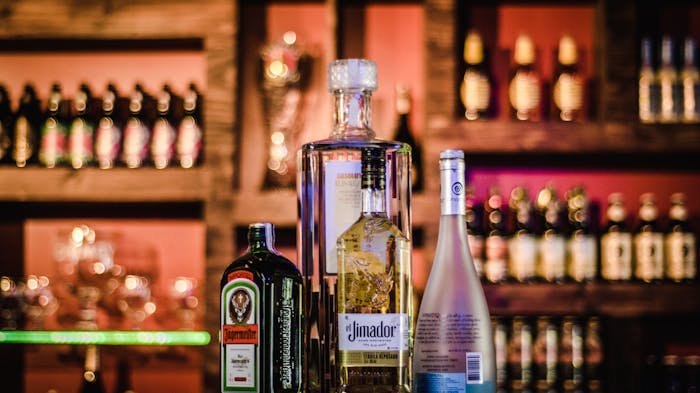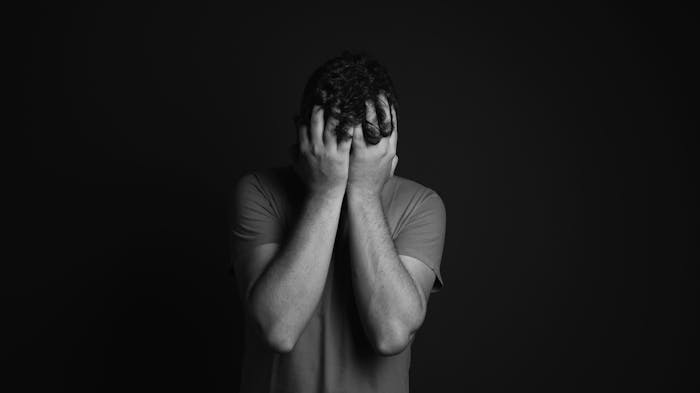Is Binge Drinking Alcoholism?
Anyone who drinks alcohol might worry about how much is too much.
There isn’t a straightforward answer as each of us has our own limits of how much alcohol is enough. Yet, there are specific behaviours surrounding your relationship with alcohol that can be concerning.
Binge drinking is one behaviour with alcohol that can be concerning. It involves a short episode of heavy drinking that can bring your blood alcohol content (BAC) to extremely dangerous levels. [1]
As a result of a binge drinking episode, you might experience vomiting and blackouts, and you may even pass out.
Alcohol use disorder (AUD), or alcohol addiction/alcoholism, is a long-term behaviour of abusing alcohol use. This generally is associated with cravings when you try to stop drinking. [2]
Alcoholism may disrupt aspects of your life and daily activities.
This article will discuss more about binge drinkers and alcohol addiction, and whether binge drinking is alcoholism.
What does binge drinking mean?

Binge drinking is defined by the National Institute of Alcohol Abuse and Alcoholism (NIAAA) as a period of time drinking alcohol where your alcohol blood concentration (BAC) is increased to 0.08% or higher. [3]
In other words, 0.08% means as a result of heavily drinking alcohol, you have 80 milligrams of alcohol per 100 millilitres of blood in your bloodstream.
In terms of how many drinks this is equivalent, it depends on the type of drink. Usually, a standard drink has 14 grams of alcohol. 14 grams of alcohol is equivalent to:
- 12 ounces of beer
- 5 ounces of wine
- 1.5 ounces of spirits (whiskey, gin, vodka, rum etc.)
Generally, experts measure a period of binge drinking over 2 hours where an adult consumes 4-5+ drinks.
This is a guideline alone and does not account for individual heights and weights that can affect how alcohol impacts you.
Binge drinking does not necessarily mean you have an alcohol addiction, and binge drinking is more thought of as a behaviour rather than an addiction. Saying this, you have a higher risk of developing an AUD and alcohol addiction. [4]
What is an alcohol addiction?
The Diagnostic and Statistical Manual of Mental Disorders (DSM-5) contains AUD ( or alcohol addiction) as a mental health issue. [5]
You might have an alcohol addiction if you find it difficult to stop regularly drinking and you continue to drink regardless of any negative consequences such as emotional or physical responses.
If you find yourself wanting to quit or reduce your alcohol intake, you may find it impossible to do so.
A professional diagnosing an alcohol addiction would see if you meet two or more of the following criteria:
- You spend lots of time drinking alcohol or trying to recover from drinking.
- You drink more than you mean to on a regular occasion.
- You find it hard to think of anything else but drinking.
- Drinking alcohol has put your safety at risk on more than one occasion, including drunk driving.
- You have tried to reduce your alcohol intake multiple times, but you couldn’t.
- Drinking interferes with your life and daily activities, such as work or time spent with family.
- You continue to drink even though it causes you multiple problems with those close to you.
- You’ve sacrificed taking part in activities or hobbies that get in the way of drinking.
- You can’t reduce your alcohol intake even though it makes you feel anxious or depressed.
- You have to drink alcohol more than you used to get the same feeling it originally caused you (alcohol tolerance).
- You get withdrawal symptoms, including shakiness or nausea, if you try to stop drinking (alcohol dependence).
What are the dangers of binge drinking?

A 2020 study of young adults revealed that binge drinking doubles any risks of issues related to alcohol. This is compared to typical drinking. [6]
Students who had been binge drinking experienced the following:
- 11% had been injured or physically unwell
- 13% felt depressed, shamed or anxious
- 15% had engaged in unsafe driving
- 40% experienced conflict and other relationship concerns
- 60% went through behaviour they later regretted
Other health risks of binge drinking and excessive alcohol or excessive drinking include high blood pressure, liver disease, heart disease, brain damage, cardiovascular disease, low body temperature, memory loss, irregular heartbeats, dependence on alcohol, alcohol withdrawal and permanent damage.
Another potential risk of binge drinking is developing an alcohol addiction if your binge drinking episodes happen too regularly.
Perhaps the most serious consequence though is alcohol poisoning. Your risk of getting alcohol poisoning increases the higher your BAC level is. [7]
Signs of an alcohol overdose include:
- confusion
- cold, clammy skin that looks bluish, greyish, or paler than typical skin colour
- extreme nauseous and vomiting
- slow breathing (less than 8 breaths a minute)
- trouble staying awake
Alcohol poisoning is incredibly serious so if you or someone you know might be experiencing alcohol poisoning, it is important to seek medical attention immediately by calling 999 (in the UK).
How do I get help for binge drinking?
If you want to reduce or cut back on your drinking completely, there are plenty of ways to get help today. [8]
Take medication
Three medications have been authorised by the Food and Drug Administration (FDA) for treating alcohol addiction. The following medications may help make it easier to stop drinking.
- Disulfiram – creates a negative association with alcohol so you become less inclined to drink, but it doesn’t target cravings.
- Naltrexone – reduces the feelings of euphoria when you drink alcohol, discouraging you from drinking.
- Acamprosate – helps you stay sober and reduces cravings.
Doctors at a drug rehab or at home will generally prescribe medication in combination with counselling to address the psychological part of addiction.
Therapy and counselling
Therapy is an effective treatment for addressing any issues you may have with alcohol use or addiction. This can be found at a rehab or while you are at home. [9]
Options for therapy can include:
- Motivational interviewing can help you to understand the underlying reasons why you drink and why you want to stop. Confirming your motivations can make it easier to commit to changing your habits.
- Cognitive behavioural therapy (CBT) can help you recognize specific moods and circumstances that trigger your cravings and urges to drink. Through this, you can then put together a plan to cope with cravings and address other symptoms of your alcohol addiction or misuse.
- The community reinforcement approach can help you build a life outside of drinking by addressing the issues that may have caused you to start drinking alcohol. For example, your therapist might help you evaluate new skills to cope with social anxiety.
- Behavioural couples therapy (BCT) can help you repair your relationship with your partner, if drinking has strained your relationship, and look at appropriate boundaries surrounding alcohol.
Mutual group support (AA)

Mutual support groups are groups of people who have all experienced issues with drinking in the past and now offer each other mutual support during recovery.
Most support groups are nonprofits and meetings are free to join.
Well-known support associations include:
- Alcoholics Anonymous (AA)
- LifeRing
- Moderation Management
- Self-Management and Recovery Training (SMART)
Their websites offer both local and online groups, so you can choose whichever option works best for you in your recovery.
The takeaway: Is binge drinking alcoholism?
Whilst binge drinking can be done occasionally by some, this type of heavy drinking can result in alcohol addiction and alcoholism. It is always best to drink in moderation and seek help if you feel your behaviours with alcohol are unhealthy.
Sources
[1] https://pubmed.ncbi.nlm.nih.gov/28526355/
[2] https://pubmed.ncbi.nlm.nih.gov/12126453
[3] https://www.niaaa.nih.gov/publications/brochures-and-fact-sheets/binge-drinking
[4] https://pubmed.ncbi.nlm.nih.gov/18243584
[5] https://www.niaaa.nih.gov/publications/brochures-and-fact-sheets/understanding-alcohol-use-disorder
[6] https://www.ncbi.nlm.nih.gov/pmc/articles/PMC7050368/
[7] https://pubmed.ncbi.nlm.nih.gov/23623907
[8] https://www.nhs.uk/live-well/alcohol-advice/alcohol-support/




